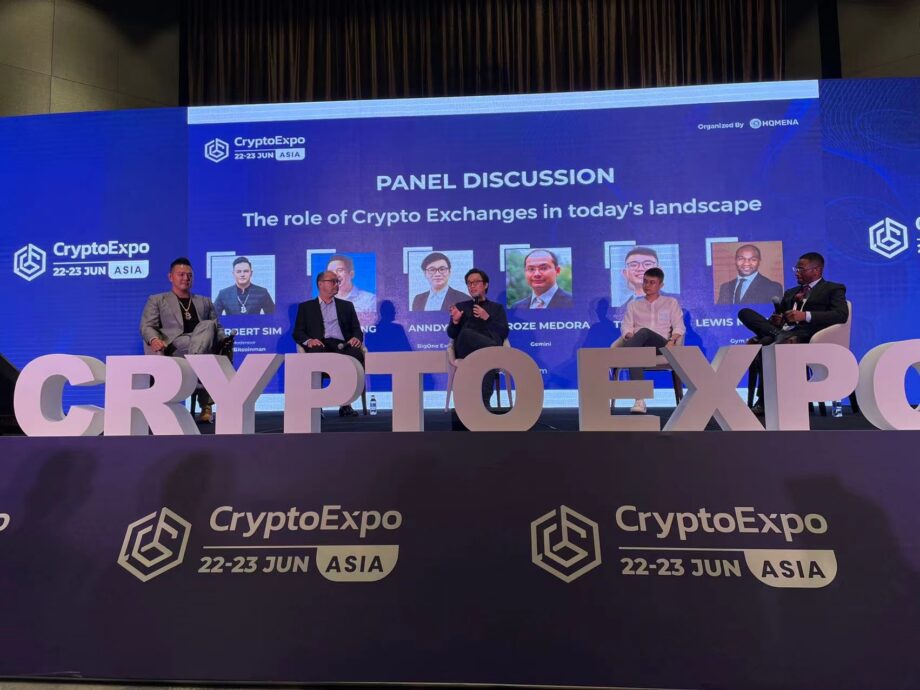I had the privilege of speaking at the Web3 Creator Summit in June, where I participated in a panel discussion on the future of NFTs. This engaging conversation sparked deeper thoughts and insights that I’d like to share, combining perspectives from the panel and my own observations.
One of the central themes of our panel discussion revolved around the significance of community within the NFT ecosystem. Each panelist, including Jenny Zheng from Bybit NFT, Karen Shidlo from Fiat24, Hugo Gong from Westminister Business School, and Anndy Lian, an Intergovernmental Blockchain Advisor, provided valuable insights. Moderating the discussion was Carmac Rowe, an NFT Enthusiast.
Karen emphasized the crucial role that community plays in establishing connections and fostering engagement. She explained how even companies offering utility tokens can benefit from building a strong community. Karen’s own company, Fiat24, relies on platforms like Telegram and Twitter to create personal connections and provide financial services to their community members.
Jenny added to the discussion by highlighting the influence of the type of NFT asset on the importance of community. While art NFTs may not heavily rely on community engagement, other types of NFTs, such as game assets or profile picture (PFP) projects, thrive on community involvement. Building an active and passionate community becomes vital for the success of these projects.
I agreed with the panelists, stressing the need for real communities rather than just a high number of members. In my view, active users and meaningful engagement are more valuable indicators of a strong community than sheer numbers.
Evaluating NFT Projects
During the panel discussion, Jenny shared valuable insights into the process of evaluating NFT projects based on her experience at Bybit NFT Marketplace. She highlighted key factors that play a significant role in their decision-making.
Firstly, they consider the project’s community and its level of engagement. A vibrant and active community indicates the potential for success. Additionally, they assess the utility and functionality of the NFTs. The presence of renowned collaborators, such as influential artists or investors, is another important aspect they consider. Lastly, the team behind the project holds immense importance. Jenny emphasized the team’s commitment and dedication to the project as a crucial factor in their evaluation process.
Diverse Applications of NFTs
Our panelists also delved into the various applications of NFTs beyond art, expressing their excitement about the potential impact on different industries.
Hugo focused on the educational aspect of NFTs, explaining how teaching students to create their own NFT collections can empower them to explore the possibilities of blockchain technology and digital ownership.
Karen highlighted the transformative potential of NFTs in the banking sector. By utilizing NFTs for identity verification and creating a more secure banking ecosystem, they aim to redefine traditional banking practices.
Recognizing the Underlying Value
In recent years, NFTs have captured the attention of enthusiasts and investors alike, from high-profile sales to groundbreaking art collections. However, as the market matures, there is now a growing emphasis on the underlying value and utility of these unique digital assets.
The Power of Community Consensus in NFTs
In the world of NFTs, the value extends beyond the artwork or digital collectibles themselves. One crucial aspect that sets NFTs apart is the sense of community they foster. Whether you’re an artist, collector, or enthusiast, being part of a vibrant community enhances the overall experience and creates opportunities for collaboration and growth.
The importance of community is not limited to a specific niche within the NFT ecosystem. Cultivating a strong community is essential, whether you’re in the web3 or web2 space. The power of consensus and shared interests drives the success of many popular NFT collections. Projects like “Bored Ape Yacht Club” and “Abe Azuki” thrive on the strength of their communities.
Transitioning from Hype to Utility
As the NFT market evolves, there has been a noticeable shift in focus from pure hype and speculation to the utility and real-world value of NFTs. The craze surrounding profile picture NFTs (PFPs) peaked during the last bull run, but the landscape has since changed. Today, the exorbitant prices associated with PFPs, often lacking tangible utility, are less likely to attract buyers.
The true value of NFTs lies in their ability to empower communities to come together and create meaningful experiences. Imagine owning a PFP that grants you exclusive access to special events or allows you to establish localized chapters of like-minded individuals worldwide. These rights and privileges bestowed upon NFT holders offer a unique form of utility that goes beyond traditional physical benefits.
It’s important to note that the days of paying exorbitant amounts for a PFP are likely behind us. While the direction of the market remains uncertain, it’s unlikely that we will witness similar million-dollar sales for profile pictures in the future.
The Growing Influence of Bigger Brands
An important trend in the NFT space is the increasing involvement of larger brands. Established names like Red Bull, Starbucks, and Gucci are actively exploring ways to engage with their communities and customers through NFTs. By leveraging blockchain technology and digital assets, these brands are forging new avenues for interaction and brand loyalty.
It’s vital to recognize that the entry of bigger brands has contributed to a decrease in transactional volume and pricing. Many of these brands are not seeking exorbitant profits from NFT sales but are instead focused on building stronger connections with their communities. As a result, the utility-driven adoption of NFTs is gaining momentum, catering to a broader user base beyond the traditional cryptocurrency enthusiasts.
Exploring New Use Cases: The Future of NFTs
Looking ahead, the potential use cases for NFTs are virtually limitless. Beyond their collectible nature, NFTs have the potential to revolutionize various industries and offer innovative solutions. Here are some potential use cases that have garnered attention:
Digital Identity and Authentication: NFTs can revolutionize digital identity and authentication systems by associating specific NFTs with user profiles, creating a unified digital identity across multiple platforms and services.
Documentation and Certification: NFTs can provide secure documentation and certification, reducing the risk of fraud and enhancing trust in various industries, from passports to educational certificates.
Gaming and Play-to-Earn Models: The integration of NFTs into gaming has the potential to transform the industry by allowing gamers to own and trade in-game assets as NFTs, unlocking real-world value and economic opportunities.
Exclusive Access and Event Tickets: NFTs can grant exclusive access to events, memberships, and experiences, incentivizing and rewarding communities while fostering loyalty and engagement.
Digital Art and Collectibles: Digital art and collectibles remain significant aspects of the NFT market, where artists can showcase their creativity and monetize their work through limited-edition NFT releases. The emergence of generative art and collaborations with renowned artists further expands the horizons of this evolving medium.
In Conclusion
As the NFT market matures, the focus has shifted from speculative hype to the utility and real-world value of these digital assets. The power of community continues to be a driving force behind successful NFT projects, fostering collaboration and growth. With the entry of larger brands, the utility-driven adoption of NFTs is gaining momentum, catering to a broader user base.
Looking ahead, the potential use cases for NFTs are vast. From digital identity to gaming and exclusive access, NFTs have the power to revolutionize various industries and create new opportunities for creators and consumers alike. As the space continues to evolve, it will be exciting to witness the innovative ways in which NFTs reshape our digital landscape.


Anndy Lian is an early blockchain adopter and experienced serial entrepreneur who is known for his work in the government sector. He is a best selling book author- “NFT: From Zero to Hero” and “Blockchain Revolution 2030”.
Currently, he is appointed as the Chief Digital Advisor at Mongolia Productivity Organization, championing national digitization. Prior to his current appointments, he was the Chairman of BigONE Exchange, a global top 30 ranked crypto spot exchange and was also the Advisory Board Member for Hyundai DAC, the blockchain arm of South Korea’s largest car manufacturer Hyundai Motor Group. Lian played a pivotal role as the Blockchain Advisor for Asian Productivity Organisation (APO), an intergovernmental organization committed to improving productivity in the Asia-Pacific region.
An avid supporter of incubating start-ups, Anndy has also been a private investor for the past eight years. With a growth investment mindset, Anndy strategically demonstrates this in the companies he chooses to be involved with. He believes that what he is doing through blockchain technology currently will revolutionise and redefine traditional businesses. He also believes that the blockchain industry has to be “redecentralised”.




